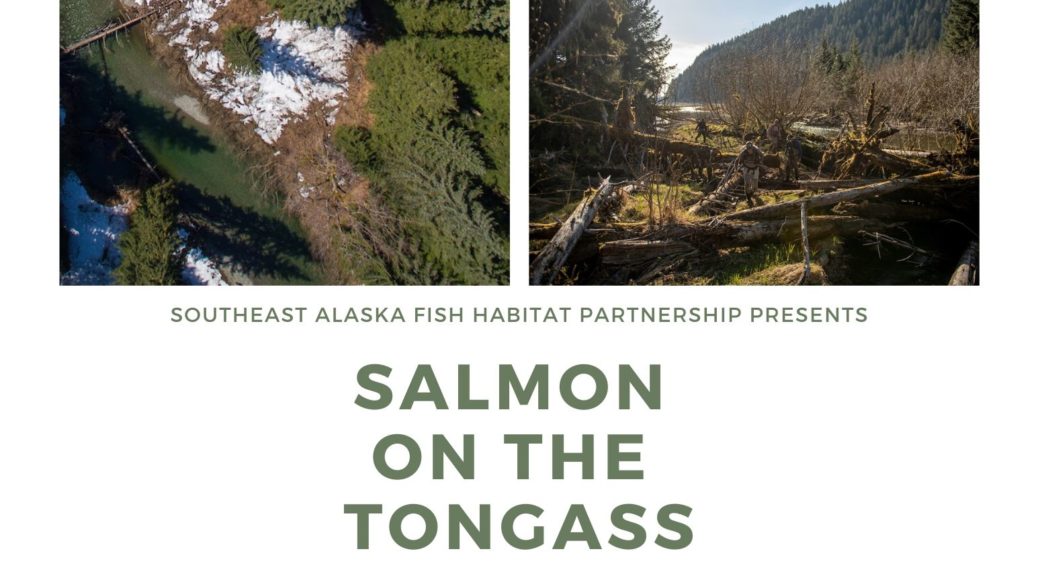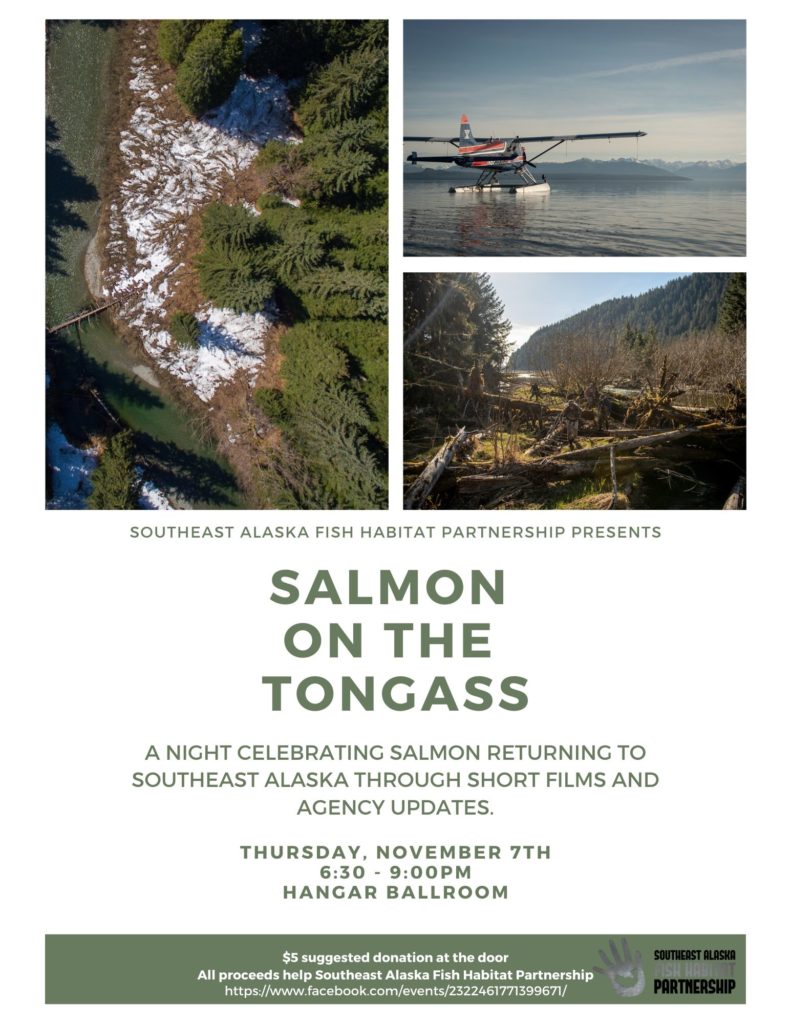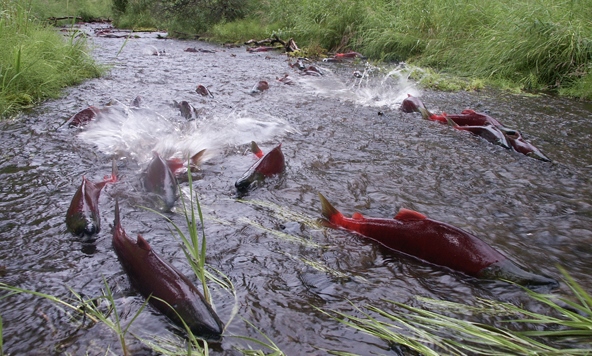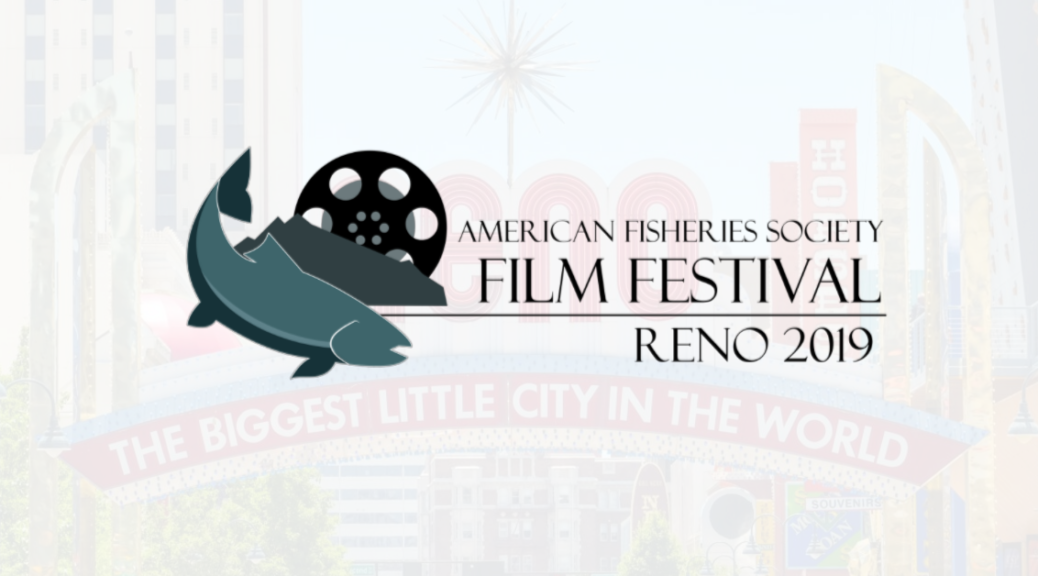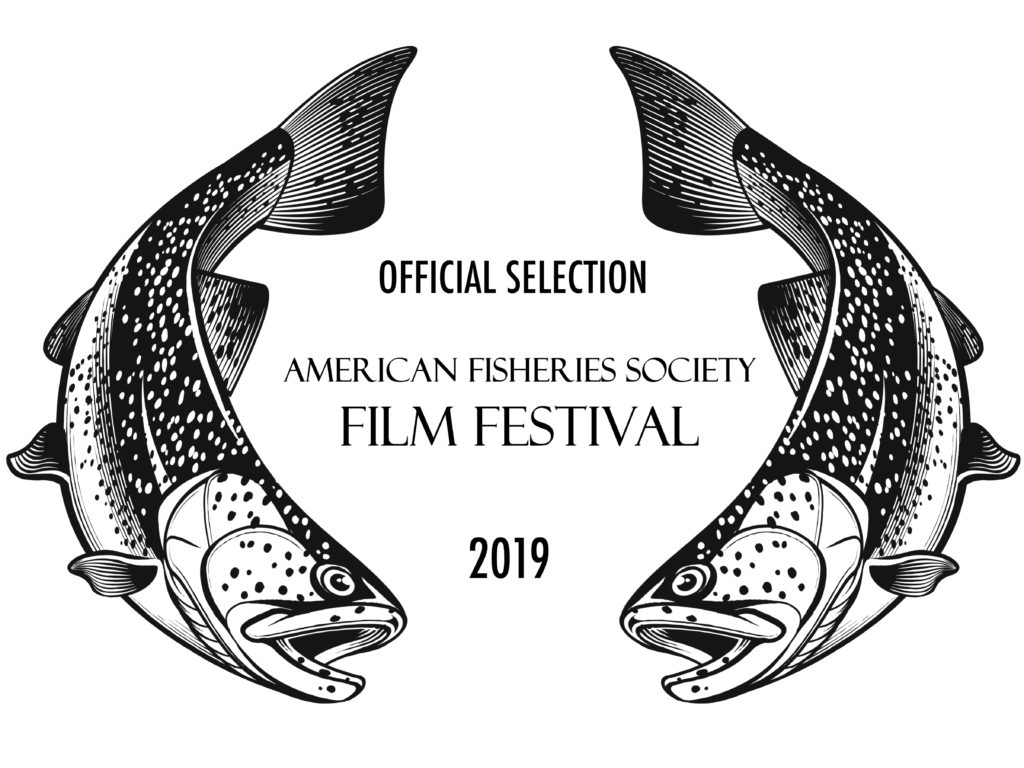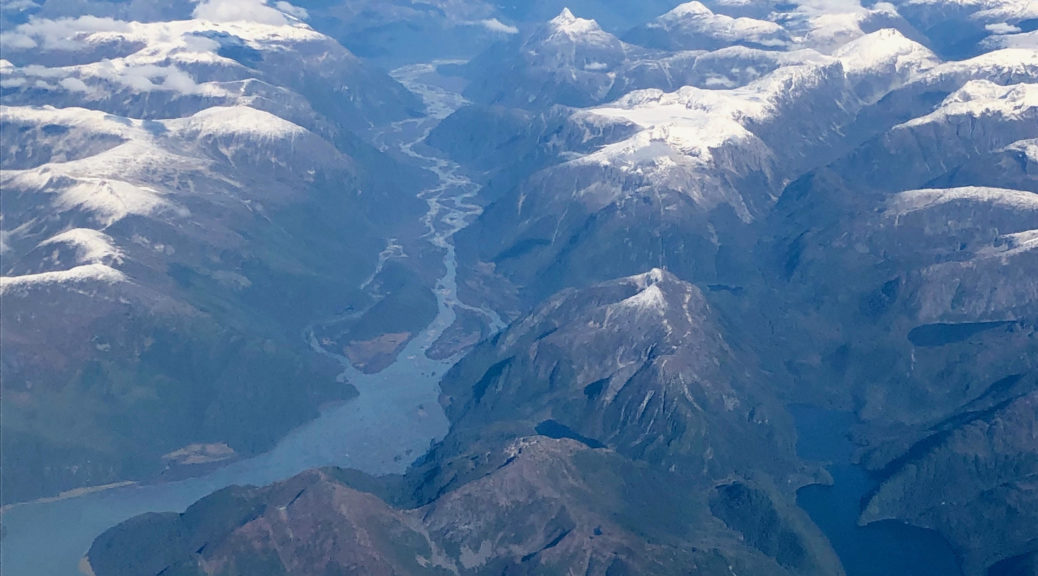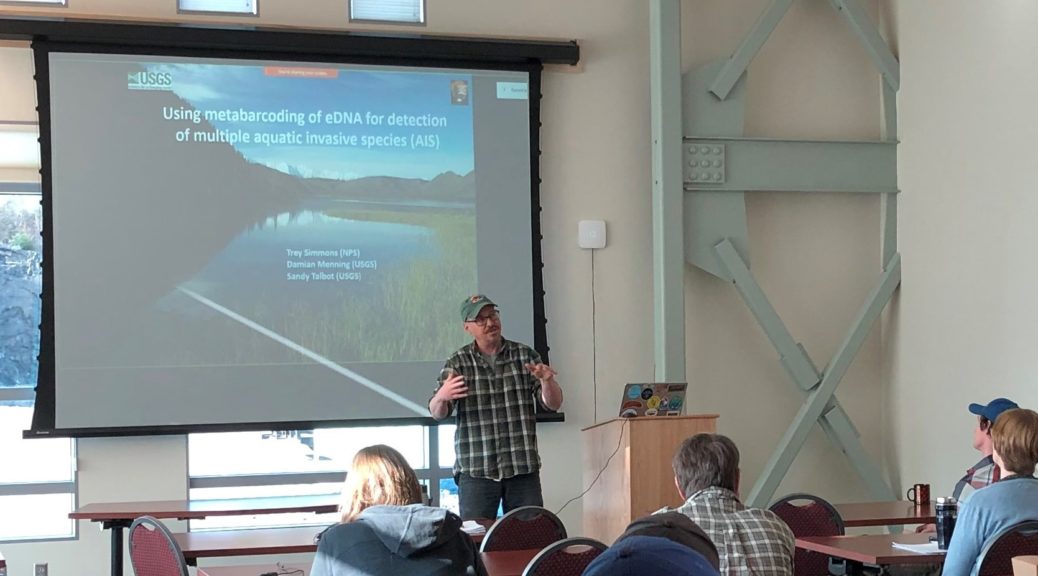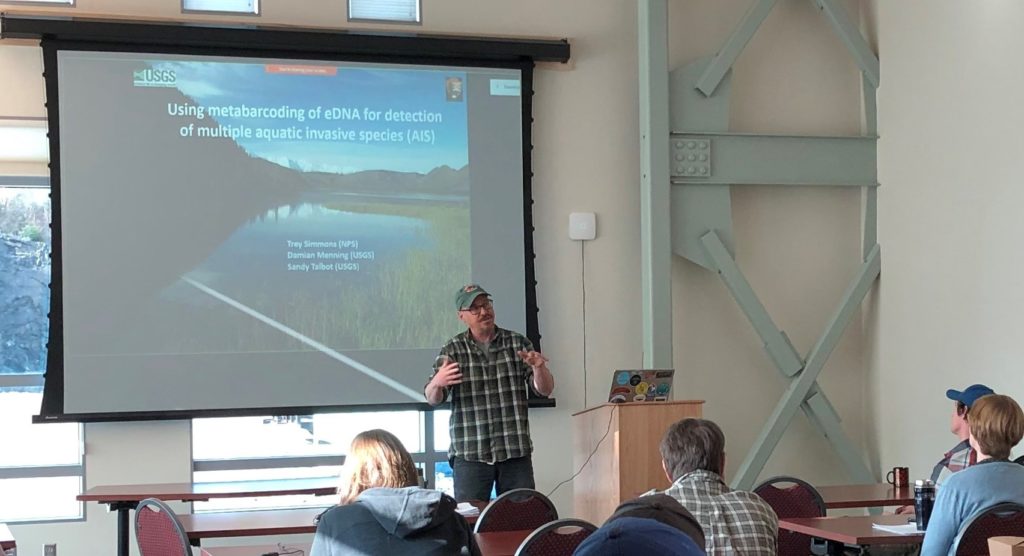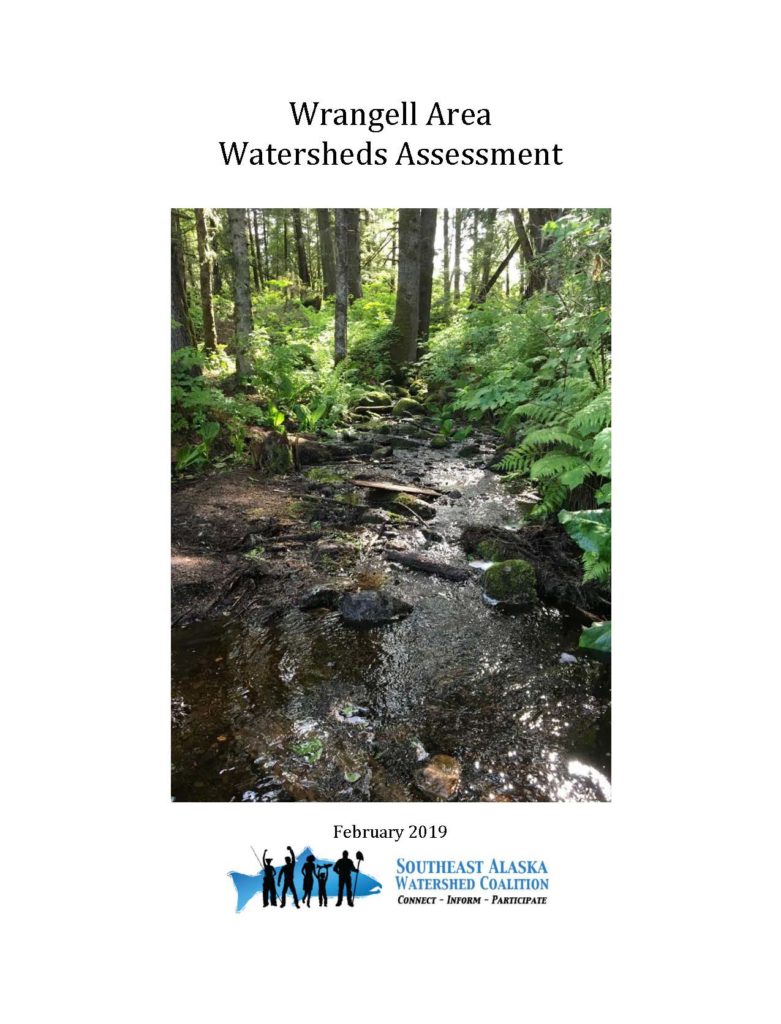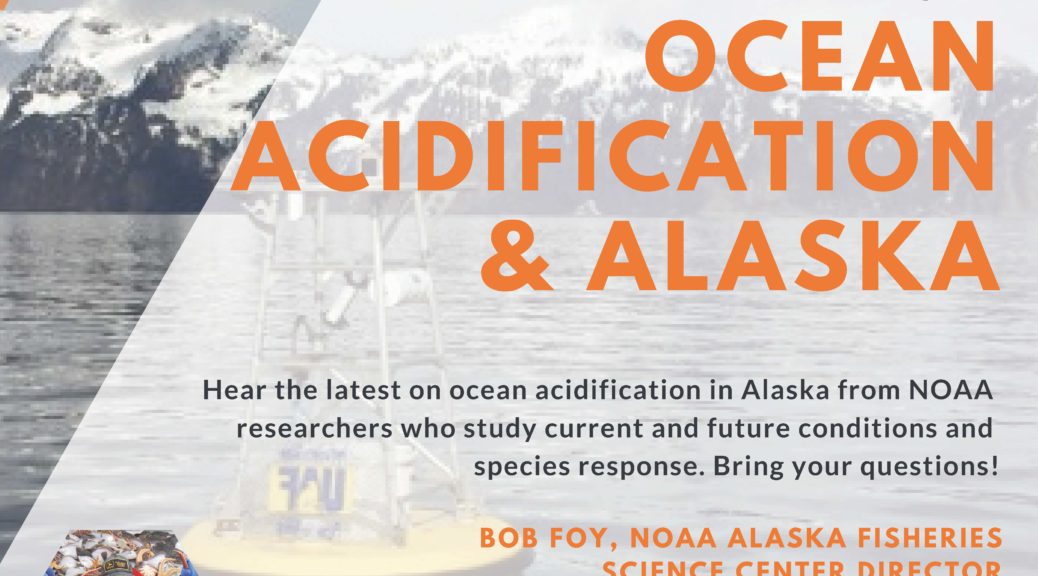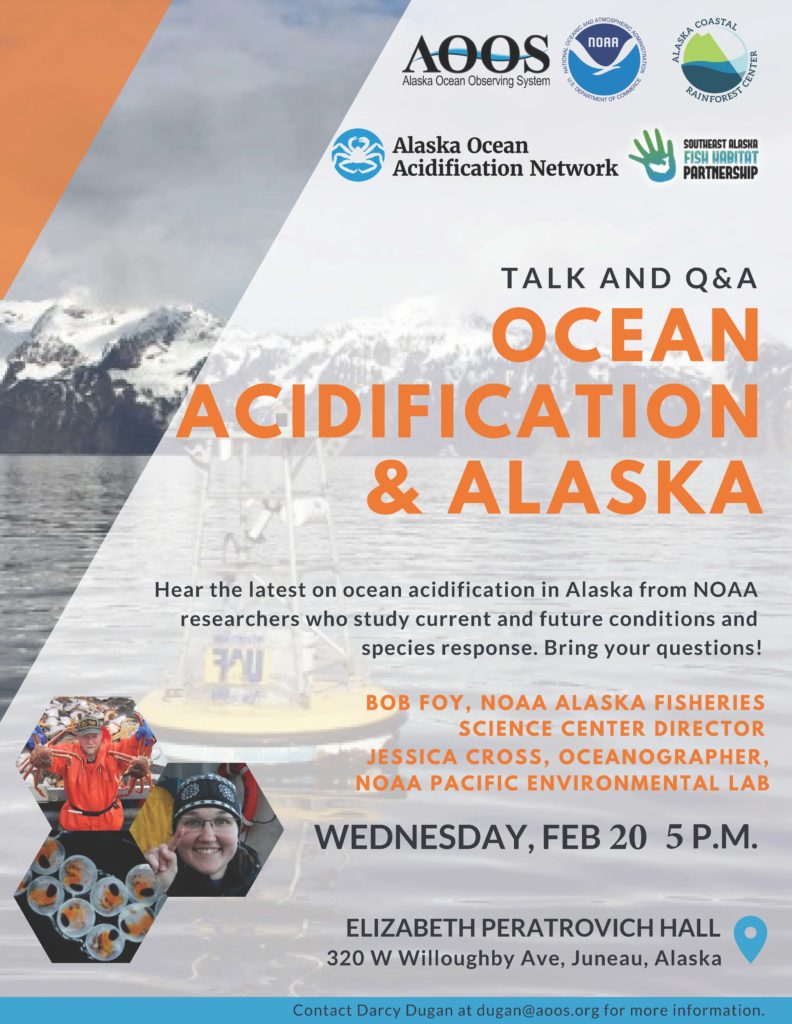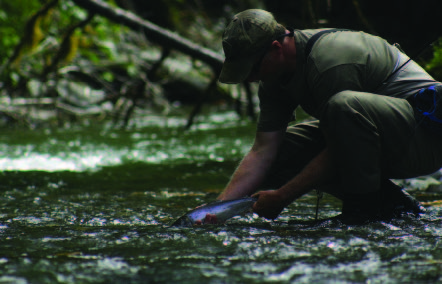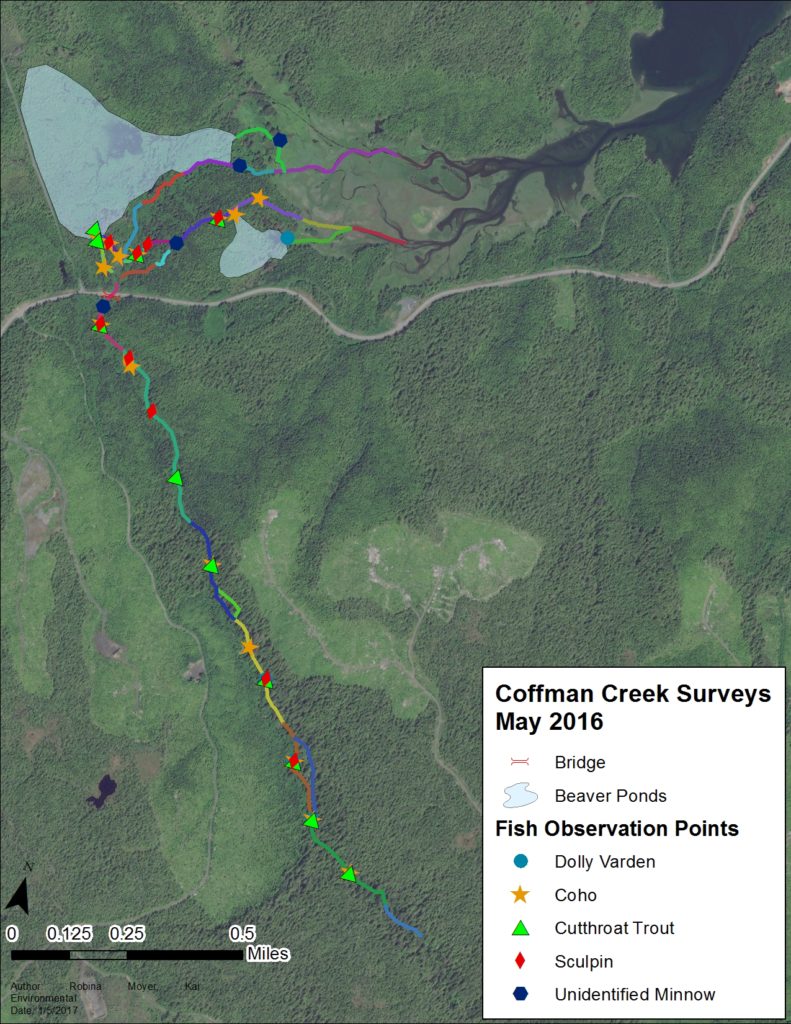SEAKFHP’s strategic action plan includes a two-part conservation strategy one focusing on freshwater aquatic areas of Southeast Alaska and the other on coastal fish habitats. Together these components serve as a blueprint for the partnership to meet its mission with measurable objectives and actions that partners and others can use to gauge progress and success in advancing shared conservation actions. It is envisioned that by fostering regional conservation strategies, strengthening partner collaboration, elevating work accomplished and planned by partners, incorporating science-based information, and articulating key priorities shared across mixed-ownership watersheds and coastal areas throughout southeast, the partnership will achieve improved on-the-ground fish habitat conservation outcomes across the region.
The freshwater strategy relies heavily on previous partnership efforts and takes advantage of more abundant freshwater assessment information resources, focus on fish passage efforts and additional partnership engagement. This revised strategy has expanded to include four conservation goals with specific objectives and conservation actions:
- Protect fish habitats in freshwater systems in Southeast Alaska,
- Maintain water quality and quantity in those areas, and
- Restore and enhance fragmented and degraded fish habitats in impacted areas.
- Foster and support assessment and monitoring that informs fish habitat and restoration science.
For the coastal strategy, four conservation goals are also identified and due to the emerging focus for these habitats early actions have been identified rather than the more thorough objective/action process developed for the freshwater strategy. In addition, these actions are focused on partnership led actions and are anticipated to expand during a future planning effort.
- Strengthen coastal policies to maintain productive fish habitat in
Southeast Alaska.
- Foster effective and sustainable assessment and monitoring networks for
fisheries habitat along Southeast Alaska’s coastal margin
- Identify and protect critical coastal fish habitat areas that must be
sustained long-term.
- Identify degraded coastal fish habitat that can be prioritized and
restored.
For more details you can find the full document here: SEAKFHP Strategic Action Plan 2017-2021

